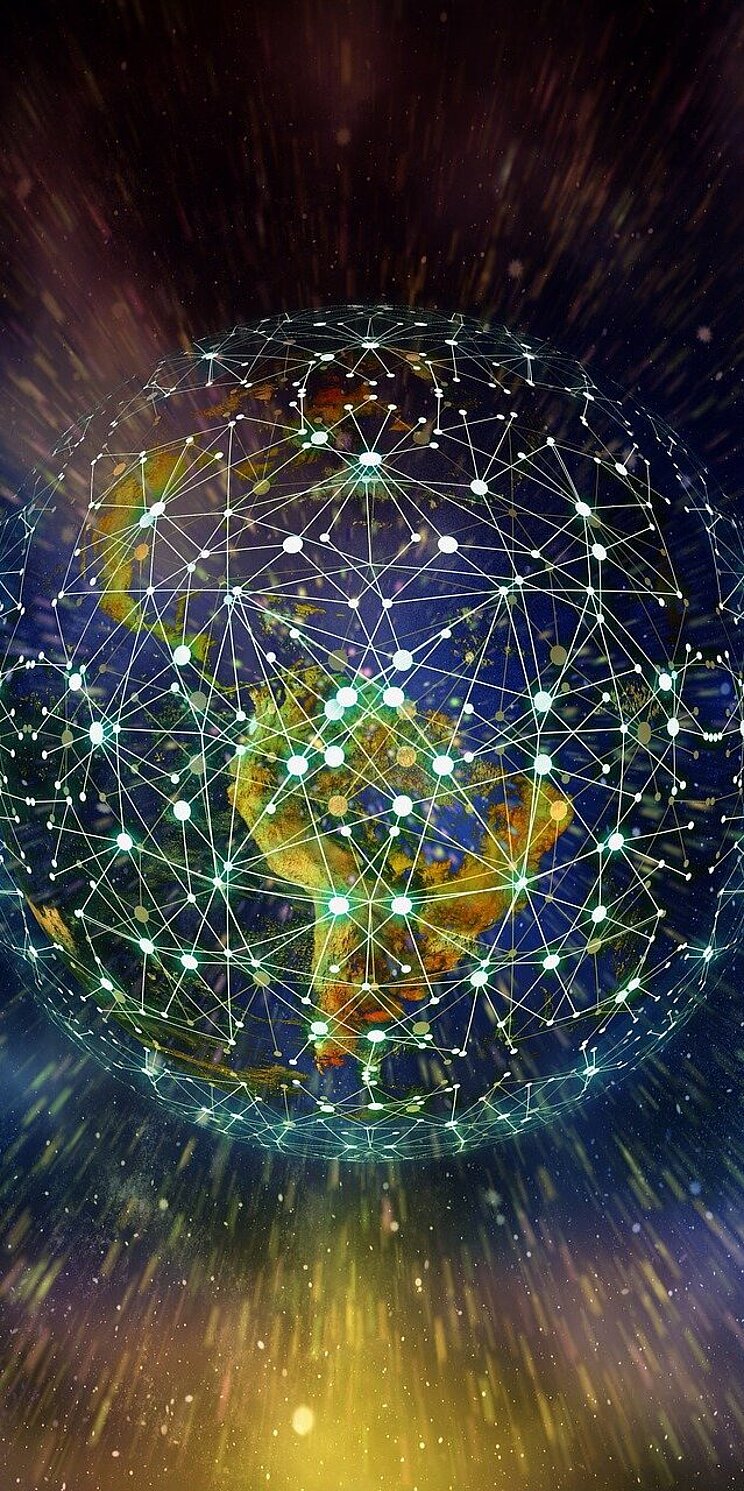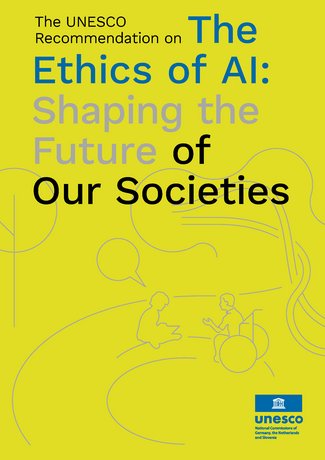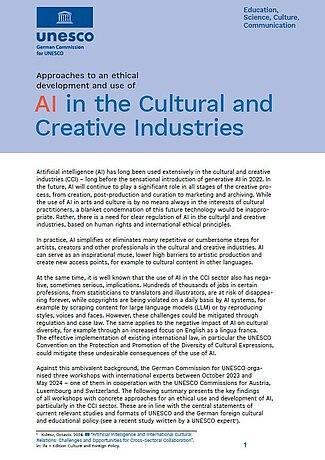Questions of ethics surrounding new digital technologies, such as AI, cannot be answered at a national level alone. AI systems developed in countries such as the USA, China and Germany, for example, are used worldwide. The ethical decisions incorporated into their design and development therefore directly impact societies in other countries. The fact that most AI development is concentrated in a few industrialised and emerging countries means that poorer countries may be left behind in tems technological progress, which could exacerbate the so-called 'digital divide' between countries.
The development and application of AI therefore directly affects issues of global justice. The UNESCO Recommendation on the Ethics of AI External link:addresses these issues, setting out specific mandates for UNESCO member states and the international community: Wherever they are used, AI systems must respect and promote human rights; digital divides within and between societies should be reduced; and international cooperation on AI should be strengthend in various fields, including education and data sharing.
The UNESCO Recommendation emphasises the importance of people from low- and middle-income countries participating in the use of AI technologies and the regulation of these technologies at an international level. Paritcular focus is given to African countries, as promoting their peaceful and prosperous development has been a key mandate of the work of UNESCOExternal link: and the German Commission for UNESCO for many years.
In light of this, the UNESCO Recommendation on the Ethics of AI sets the following overarching objective:
[Translate to English:] Überschrift
"to promote equitable access to developments and knowledge in the field of AI and the sharing of benefits, with particular attention to the needs and contributions of LMICs (...).
To this end, the German Commission for UNESCO is raising awareness among key stakeholders in Germany and working with international experts and other National Commissions for UNESCO.
National awareness of global AI justice
The German Commission for UNESCO promotes a global perspective on AI justice through panel discussions and workshops involving stakeholders from German development cooperation, science policy, and the Global South. There is a risk that the global community will repeat the mistakes of previous technological developments in the AI revolution: high-income countries dominate the development and use of new AI systems, while poorer countries once again find themselves in the role of observers. However, events organised by the German Commission for UNESCO repeatedly demonstrate the great potential of these countries for AI research and development. There is already a whole series of ‘AI hubs’ on the African continent where experts from science and the private sector are working together successfully.
In the context of its international cooperation activities, Germany can contribute to the more effective realisation of this potential, as well as to the equal development and use of AI. This could be achieved by actively involving poorer countries in regulatory processes, for example, or by expanding international scientific cooperation on AI topics.
International networking on the ethics of AI
The German Commission for UNESCO organises international training and networking events to promote global AI justice. These include online seminars for staff of National Commissions for UNESCO from around the world, where they can share ideas on how to effectively implement the UNESCO Recommendation on the Ethics of AI. The seminars clearly demonstrate the significant advantages of collaboration between the 200 National Commissions for UNESCO. Despite their national differences, the challenges and solutions they face are often similar or transferable, whether with regard to communicating AI topics to national stakeholders or promoting AI education. Alongside these global activities, the German National Commission for UNESCO regularly organises joint events with other European National Commissions for UNESCO. For instance, it has collaborated with the Commissions of Austria and Switzerland to examine the role of AI in journalism.
[Translate to English:] Überschrift (Kopie 1)
[Translate to English:] zur Übersichtsseite Ethische Aspekte Künstlicher Intelligenz
Back to overview Ethics of AI



